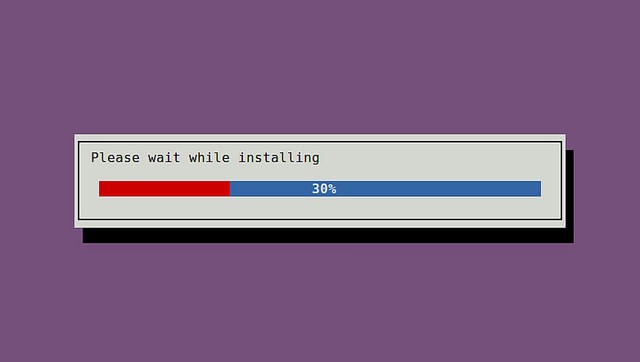在终端环境下安装新的软件时,经常会看到信息对话框弹出,需要你的输入。对话框的类型有密码箱,检查表,菜单,等等。他们可以引导你以一种直观的方式输入必要的信息,使用这样的用户友好的对话框的好处是显而易见的。如下图所示:
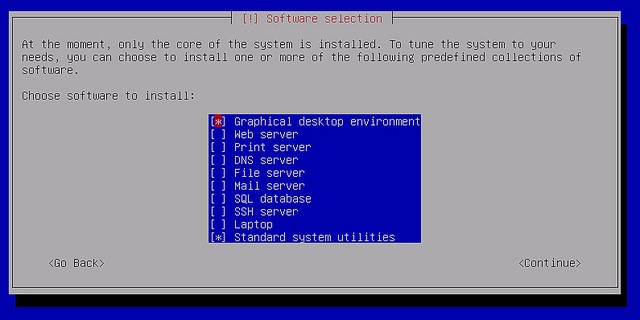
当你想要写一个交互式shell脚本时,你可以使用这样的对话框来接受用户的输入。whiptail可以在shell脚本中创建基于终端的对话框,消息框的过程,类似于Zenity或xdialog GUI脚本代码。预先安装在所有的Linux发布版本中。
相关链接: https://en.wikibooks.org/wiki/Bash_Shell_Scripting/Whiptail
创建消息框
- 语法
1 | whiptail --title "<message box title>" --msgbox "<text to show>" <height> <width> |
- 实例
1 |
|
- 效果
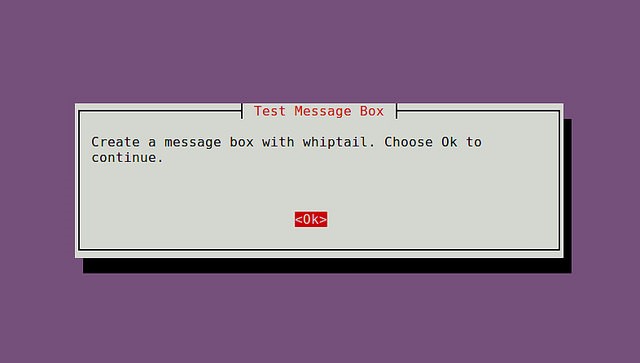
创建yes/no对话框
- 语法
1 | whiptail --title "<dialog box title>" --yesno "<text to show>" <height> <width> |
- 实例
1 | if (whiptail --title "Test Yes/No Box" --yesno "Choose between Yes and No." 10 60) then |
- 效果
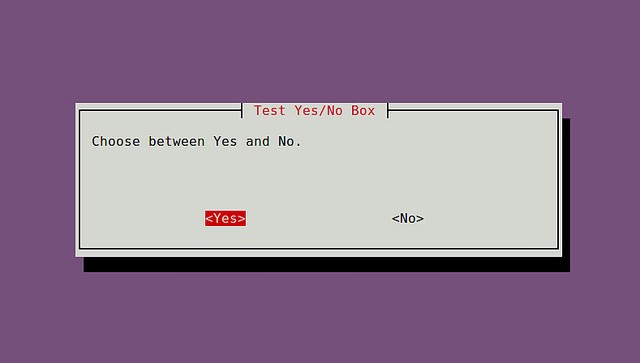
或者可以是“–yes-button” , “–no-button”选项。
1 |
|
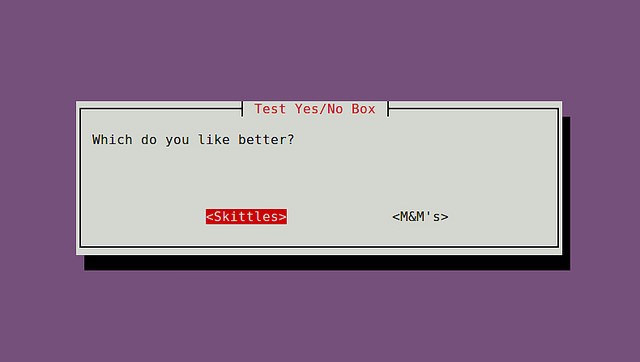
创建一个表单输入框
如果你想用户输入任意的文本,您可以使用一个输入框。
- 语法
1 | whiptail --title "<input box title>" --inputbox "<text to show>" <height> <width> <default-text> |
- 实例
1 |
|
- 效果
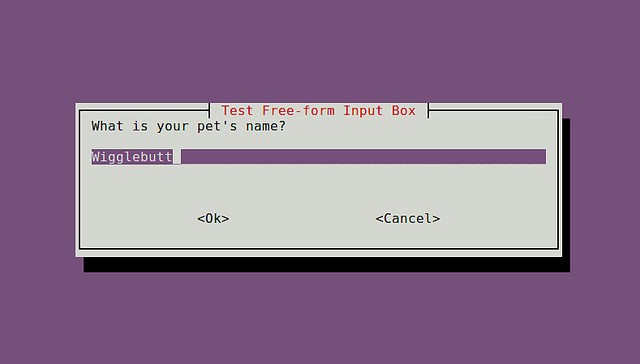
创建一个密码框
当用户需要输入敏感信息时密码框是有用的。
- 语法
1 | whiptail --title "<password box title>" --passwordbox "<text to show>" <height> <width> |
- 实例
1 |
|
- 效果
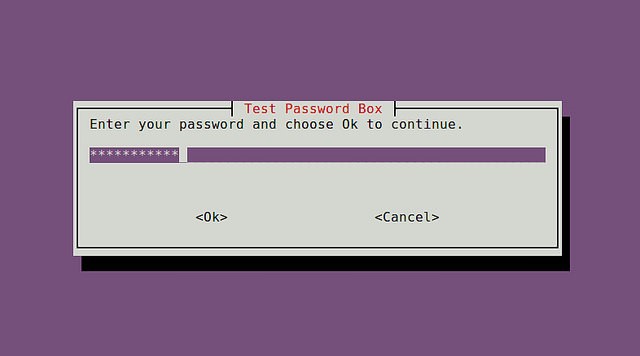
创建一个菜单栏
当你想让用户选择一个任意数量的选择中,你可以使用菜单框。
- 语法
1 | whiptail --title "<menu title>" --menu "<text to show>" <height> <width> <menu height> [ <tag> <item> ] . . . |
- 实例
1 |
|
- 效果
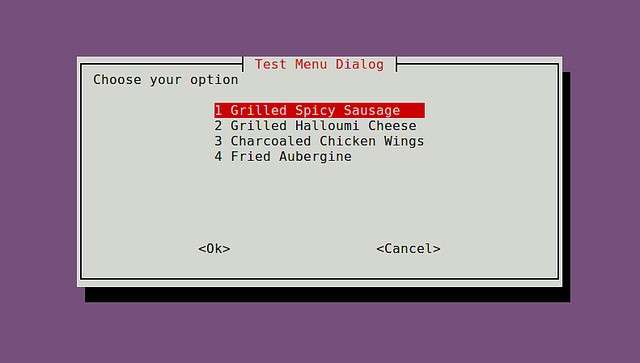
创建radiolist单选对话框
- 语法
1 | whiptail --title "<radiolist title>" --radiolist "<text to show>" <height> <width> <list height> [ <tag> <item> <status> ] . . . |
- 实例
1 |
|
- 效果
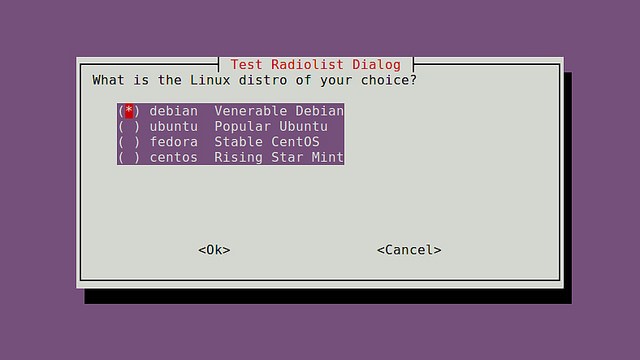
创建一个表对话框
当你想让用户选择一个列表中选择多个选项的清单对话框是有用的,radiolist对话框,只允许选择一个。
- 语法
1 | whiptail --title "<checklist title>" --checklist "<text to show>" <height> <width> <list height> [ <tag> <item> <status> ] . . . |
- 实例
1 |
|
- 效果
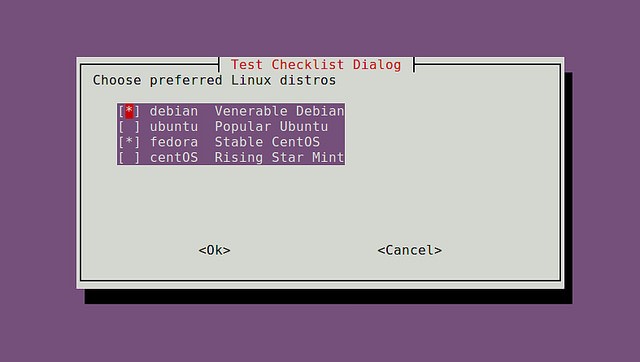
创建一个进度条
进度条是一个用户友好的对话框。whiptail从标准输入读取一个百分数(0~100),显示一个表内相应的计数。
- 语法
1 | whiptail --gauge "<test to show>" <height> <width> <inital percent> |
- 实例
1 |
|
- 效果
